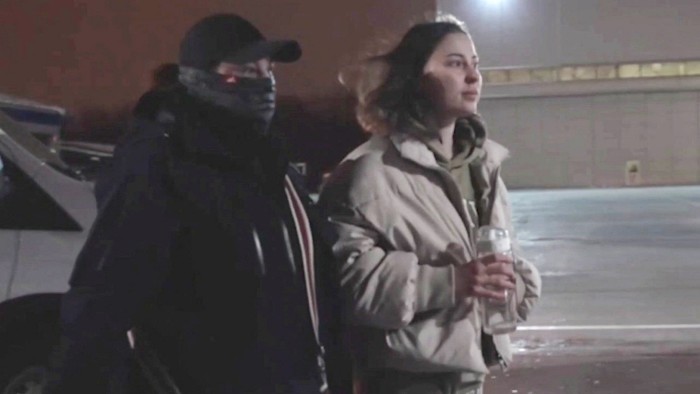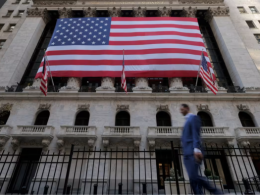Unlock the White House Watch newsletter for free
Your guide to what the 2024 US election means for Washington and the world
The US and Russia exchanged prisoners in Abu Dhabi on Wednesday amid efforts by President Donald Trump’s administration to repair relations with Vladimir Putin and end the war in Ukraine.
Russia’s FSB security service released Ksenia Karelina, a US-Russian dual citizen serving a 12-year sentence for treason, in exchange for Artur Petrov, a German-Russian dual national who was facing 20 years in prison in the US for allegedly supplying microelectronics to Russia in breach of western sanctions.
The deal is the latest in a series of prisoner swaps between Russia and the US that the sides have described as confidence-building measures to restore diplomatic relations since Trump resumed office this year.
“American Ksenia Karelina is on a plane back home to the United States,” US secretary of state Marco Rubio wrote on X, adding that “she was wrongfully detained by Russia for more than a year”.
He said that Trump “will continue to work for the release of ALL Americans”.
In February, Russia released a US schoolteacher serving a sentence on drugs charged in exchange for a Russian cyber criminal after Steve Witkoff, Trump’s special envoy for the Middle East, met Putin in Moscow.
Witkoff’s visit set off an unprecedented reversal of US policy on Putin’s invasion of Ukraine, as Trump began negotiations aimed at bringing Russia back in from the cold and appeared to adopt many of the Kremlin’s own talking points.
But the talks have since stalled amid Putin’s hard line on Trump’s offer of an unconditional 30-day ceasefire, which Ukraine has accepted. The talks have continued to progress at a technical level, including discussions in Istanbul on Thursday about restoring the countries’ embassies. US officials have said, however, that Putin does not appear ready to end the war or drop his maximalist conditions for doing so.
Petrov, who was arrested in Cyprus in 2023, was extradited to the US and later charged by the US Justice Department with conspiring to smuggle shipments of US-made microelectronics into Russia.
According to the Justice Department, he relied on a series of shell companies to conceal the final destinations of shipments that had “significant military applications” and were subject to US export controls.
Karelina, a former ballerina and beautician living in southern California, was arrested early last year on treason charges for transferring $51.80 from her US bank account to a pro-Ukraine charity on the first day of the invasion.
Her case was part of a series of arrests of American citizens in Russia, including Wall Street Journal reporter Evan Gershkovich, which US officials described as attempts to build up a pool for future potential swaps involving Russians arrested in the west.
In August last year, the US and Russia exchanged a total of 24 prisoners, including Gershkovich, in the biggest swap between the two countries since the cold war.
Source link









